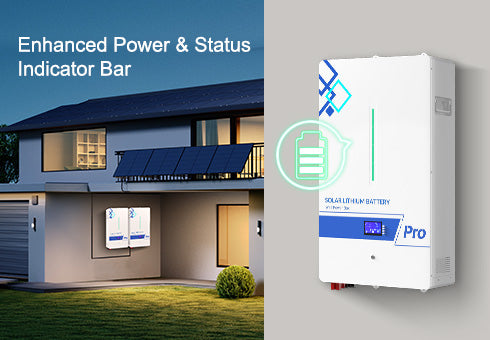Unlocking the Power: Discover the Secrets of 48V Lithium-Ion Batteries!
Lithium-ion batteries have revolutionized the way we power our devices, from smartphones to electric vehicles. As technology continues to advance, the demand for efficient, reliable, and long-lasting power sources has skyrocketed. Among these, the 48V lithium-ion battery stands out due to its unique combination of voltage and capacity, making it ideal for a range of applications. Whether used in renewable energy systems, electric vehicles, or backup power solutions, the relevance of 48V lithium-ion batteries in modern technology cannot be overstated. Their growing importance is not just a trend but a fundamental shift towards more sustainable energy solutions that cater to our evolving needs.

Understanding 48V Lithium-Ion Batteries
A 48V lithium-ion battery is a type of rechargeable battery that operates at a nominal voltage of 48 volts. These batteries are composed of multiple cells connected in series, with each cell typically having a voltage of about 3.6 to 3.7 volts. The capacity of these batteries can vary widely, often ranging from 20Ah to over 100Ah, depending on the specific application. One of the key features of lithium-ion technology is its high energy density, which allows for more energy storage in a smaller and lighter package compared to other battery types. Additionally, 48V lithium-ion batteries boast a long cycle life, often exceeding 2,000 charge cycles, which translates to years of reliable service. The chemistry behind these batteries involves lithium salts in an organic solvent, which facilitates the movement of lithium ions between the anode and cathode during charge and discharge cycles. This is what gives lithium-ion batteries their impressive efficiency and performance.
Advantages of 48V Lithium-Ion Batteries
The advantages of using 48V lithium-ion batteries are numerous and compelling. Firstly, their efficiency is significantly higher than that of traditional lead-acid batteries, allowing for quicker charging and discharging. This efficiency translates into a higher energy density, meaning that more power can be stored in a smaller space, which is crucial for applications where weight and size are critical. Additionally, lithium-ion batteries are known for their lightweight nature, making them ideal for electric vehicles and portable applications. Longevity is another key advantage; with proper management, these batteries can last for many years, reducing the need for frequent replacements. Compared to lead-acid batteries, which typically have a much shorter lifespan and lower depth of discharge, 48V lithium-ion batteries offer a far superior return on investment. This combination of efficiency, energy density, weight, and longevity positions 48V lithium-ion batteries as the preferred choice in many sectors.
Applications of 48V Lithium-Ion Batteries
48V lithium-ion batteries find diverse applications across various sectors, illustrating their versatility and effectiveness. In the realm of renewable energy, these batteries are commonly used in solar energy systems, where they store excess power generated during the day for use at night or during cloudy weather. This capability enhances the reliability of solar installations, making them more appealing to consumers. Another significant application is in electric vehicles (EVs), where 48V systems are becoming increasingly popular for hybrid and fully electric models. The efficiency and power output of these batteries contribute to extended driving ranges and improved vehicle performance. Furthermore, 48V lithium-ion batteries are also employed in backup power systems, providing essential support during outages for both residential and commercial applications. For instance, a friend of mine recently installed a solar power system with a 48V battery backup, and it has made a remarkable difference in their energy independence and reliability.
Comparison with Other Battery Types
When comparing 48V lithium-ion batteries with other battery types, such as lead-acid and nickel-metal hydride (NiMH), several factors come into play. Performance is a significant differentiator; lithium-ion batteries excel with higher energy density and efficiency, allowing for greater power output in a smaller size. In terms of cost, while the upfront investment for lithium-ion batteries is typically higher, their longevity and reduced maintenance costs make them a more economical choice in the long run. Environmental impact is also an essential consideration; lithium-ion batteries can be recycled more efficiently than lead-acid batteries, which pose more significant disposal challenges. Furthermore, as the demand for cleaner energy solutions grows, the advantages of 48V lithium-ion batteries become more apparent, making them the preferred option for many applications.
Summary of Key Insights
In conclusion, 48V lithium-ion batteries represent a critical advancement in battery technology, offering remarkable efficiency, longevity, and versatility across various applications. Their ability to power everything from electric vehicles to renewable energy systems highlights their significance in today's technology landscape. As we look toward the future, ongoing developments in battery technology promise even greater enhancements in performance and sustainability. The transition to lithium-ion solutions is not just a trend, but a necessary evolution towards a more energy-efficient and environmentally friendly world.







